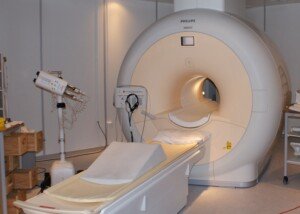The dangers of obesity include how it will compromise the effectiveness of a CT scan. This could mean a missed cancerous tumor, among other missed pathology.
Many people associate obesity only with heart disease and attacks, high blood pressure, type 2 diabetes, serious complications from COVID-19, knee replacement surgery and quick exhaustion from light activity.
But obesity has serious health consequences in the realm of CT scan technology. This goes well-beyond being too heavy for the table.
“Obesity causes four main issues with abdominal CT scans,” says Brett Mollard, MD, a board certified diagnostic radiologist who specializes in abdominal imaging and nuclear medicine.
#1. “The patient may not fit in the scanner – either due to large abdominal size too large to fit into the CT gantry or exceeding the CT table weight limit, which generally varies between 300-500 pounds; that would prevent CT imaging,” explains Dr. Mollard.
#2. “Portions of the patient’s abdomen are outside of the field of view and therefore unable to be imaged.”
#3. “The patient may require a higher dose of radiation to create the images.”
#4. “The CT scan may be of poor image quality with noisy/grainy images that prevent accurate diagnosis.
“In this instance, the CT scanner maxes out on available radiation to create the images.
“Too much of the radiation needed to create the image is absorbed by the patient, resulting in a smaller amount of radiation remaining to create the CT images and therefore some decrease in image quality.”
Finally, all of these issues may result in the patient spending a longer time inside the scanner when compared to people who are not obese.
This longer time could result in anxiety and/or difficulty lying still.
Dr. Mollard adds, “Conversely, obese patients typically have increased fat within the abdomen, called mesenteric fat, that spreads out the bowel and makes the bowel easier to evaluate.”


 Brett Mollard, MD
Brett Mollard, MD
























